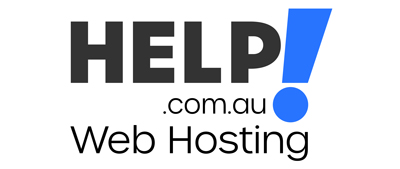https://www.greengeeks.com/blog/201...hould-be-using-whois-privacy-on-your-domains/
Posted on
December 8, 2015 by
Kaumil Patel
7 Reasons Why You Should Be Using WHOIS Privacy On Your Domains
The WHOIS database is essentially a collection of information, such as your name and email address, that registrars publish once you purchase a domain. It’s used as contact information much like a traditional phone book. As you can guess, a great deal of complications can come from this information remaining in public access. Luckily, most registrars allow you to “purchase” privacy controls when you buy a domain. This removes that information from public view and keeps your contact info private.
Not everyone understands the value of keeping website ownership private. However, it can play a part in a variety of situations. For many people, the extra fee per year is far worth the peace of mind they get knowing that their information is hidden from view. Below are some of the reasons why you would want to utilize privacy on your domain. It may all center around what you’re trying to accomplish with the website.
Why Should You Use Privacy Controls on Domains?
1. Reducing Spam
When your name and contact information is visible in a WHOIS search, you are opening yourself to a great deal of spam. Many marketers will use this information to develop lists to sell to virtually any organization looking to mass email information. This allows marketers to develop niche mailing lists to sell for their own gains while subjecting you to unsolicited email.
Spam could also include unsolicited email from those attempting to earn your business. Website designers, other website owners and other “deals” could easily begin to flood your inbox. Registrations scams, fake alerts and more can also become problematic if your information is made available to the public.
2. Reducing Identity Theft
Not all identity thieves are looking to score your credit card information. Many will use your information to try to gain control of your site, create accounts in your name or otherwise spread digital mayhem. WHOIS privacy reduces the risks of losing your identity to those who have malicious intent.
3. Personal Views vs. Professional Information
Many people will use privacy settings in order to keep their professional and personal lifestyles separate. For example: Let’s say that you said something utterly controversial in social media channels. Without WHOIS privacy hiding your identity, your website could be linked to that comment by your name. You could find people boycotting your site on social media reducing the number of visitors.
4. Control of Contact Information
From a professional perspective, using a private domain helps re-enforce visitors to use specific contact information. Instead of using your private phone, email or address to inquire about professional services, these individuals will need to use the information you provide on the website. This gives you superior control when it comes to the correct contact information for the business site or professional blog. The last thing you want is for someone to try and order a product your business sells at two in the morning when you’re trying to sleep.
5. Hiding Your Physical Location
Not everyone on the Internet is friendly. If you post something on your site that could rile the attention of extremists, your home could be targeted. Although this is a more severe example, access to your private residence could open the floodgates for snail mail and other problematic pranks. You never know who will order you a dozen pizzas sent to your registered address because of something you did or wrote on your website.
6. Hiding Website Ownership or Designing Party
Not all registered users are directly tied to the website in question. It’s a common enough practice where designers and site hosting providers register the domain for clients. For whatever reason, some clients would rather not have their personal information tied to the site. Instead of showing the designer’s information, which may have nothing to do with the topic of the website itself, some will opt to use WHOIS privacy settings.
7. It’s Inexpensive
Keeping your information out of public view isn’t all that expensive in the grand scheme of things. For most registrars, it may be less than $10 per year. That’s less than a dollar per month to reduce spam, scams and negative feedback regarding your material. Learn about
GreenGeeks ID Protect now and sign up today for this essential service.
It’s a Cyber-Jungle Out There; Keep Your Information Secure
As the Internet continues to grow and more people access websites, the risks to personal information continue to grow. Although you may believe your site is too small to get any real attention, it may be only a matter of time before your inbox becomes flooded with unsolicited messages and threats. Never assume that your site is too insignificant to be noticed, even if you just purchased the domain yesterday.
___________________________________
The difference between Domain Privacy and Private Tech
Article ID: 1492 Published: 22 Sep 2014 Authored by: Crazy Domains Support
Unfortunately, Domain Privacy cannot apply to .AU Australia domain names due to restrictions enforced by .AU Policy. We are, however, able to offer a limited version of Domain Privacy called Private Tech.
Australian .AU domain name registrations have two contact identifiers: Registrant and Tech.
Tech Information under the Tech contact is not displayed on the public WHOIS, giving you full privacy.
Registrant Remain as the owner information on WHOIS which will result in your personal information being disclosed on WHOIS in accordance with auDA policy.
Read more at
https://www.crazydomains.com.au/hel...privacy-and-private-tech/#4tkYRCqwG7JfWBu7.99









